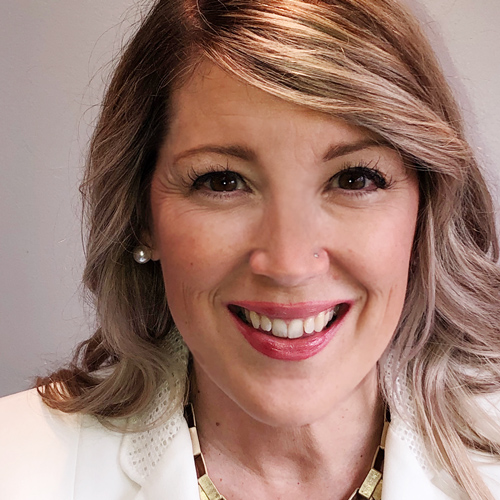
By Tricia Benn
From Idea to Multi-Million-Dollar Business – Thriving in a Disruption Economy
From Idea to Multi-Million-Dollar Business – Thriving in a Disruption Economy https://csuiteold.c-suitenetwork.com/advisors/wp-content/themes/csadvisore/images/empty/thumbnail.jpg 150 150 Tricia Benn https://secure.gravatar.com/avatar/9f32ae168436fb8ccff17fd6972e7dde?s=96&d=mm&r=g
In The Hero Club, we like to celebrate the successes of all our leaders. We all experienced the disruption COVID brought upon our businesses and lives, but there were plenty of success stories that can be highlighted despite a very difficult time for many.
Evan and Rachel Dash, a husband-and-wife team, are one of those success stories.
Their company, StoreBound, is well on their way to become a household name, and there’s a good chance you’ve seen or might own some of their small appliances. You can find Dash products everywhere, from department stores to big-box retailers, Amazon, even grocery stores. Evan and Rachel built an idea into a multi-million-dollar business. Within the last year, Dash sold a majority interest to Groupe SEB, a French company behind well-known brands such as T-Fal, Krups, Rowenta, and more.
“(Groupe SEB) approached us and said, ‘we absolutely love what you’re doing. We appear to be doing the same things, but we’re doing it in the opposite way. We love what you’re doing with digital marketing. We could bring you resources,’” Evan said during a recent C-Suite Network Digital Discussion Leadership Series event.
To fully grasp the magnitude of their success, it’s critical to bring some perspective into StoreBound’s origin story.
“Unbelievable Business School Education”
Evan enjoyed a successful career in retail, working for several big name brands like Lord & Taylor, Linens N Things, and most recently, Macy’s.
“I spent most of my working life in corporate America, and when you work in corporate America, there’s not a lot that you really have to be concerned about,” he said. “You do your kind of corporate politics, and you impress the right people, and your career tends to go pretty well.”
Even with all this success, Evan admits he had some entrepreneurial impulses but wasn’t much of a risk-taker himself.
“I didn’t feel like department store retailing was moving in the right direction, but I kept getting promotions and these incredible opportunities to learn,” Evan recalled. “I got the most unbelievable business school education on somebody else’s dime, with no risk, getting overpaid.”
Part of that on-the-job business school education included building a network and knowledge base that he didn’t realize the value of all that information until he went to a product trade show.
It was there where Evan decided to turn his badge, so people didn’t know who he was working for, and went to see the new vendors. There he found a mother and daughter with a new, interesting product and struck up a conversation.
The duo told Evan a large retailer had just visited their booth and promised to order 10,000 units. When Evan asked how they would finance the production of an order, the mother said she was ready to take out a second mortgage.
“I just had this epiphany that these poor ladies are not going to get paid. They don’t realize what they’re getting into. The company is going to hold back payment to make sure that everything sells. Whatever doesn’t sell is going to get sent back. They could wind up losing everything,” Evan recalls. “I realized at that point that the average person has no idea, the perils of working with big retailers.”
On the other side of the equation, Evan realized companies on the supply side had no idea the pressures he was under as a retail buyer.
He saw the opportunity. While he and his wife Rachel (who also worked as a retail buyer) didn’t know what kind of product their company would sell, there was an end goal in their mind.
“We just wanted to win hearts,” Evan said. “We knew that started with winning the hearts of the team that we hope to eventually build. Winning the hearts of our retail customers and then winning the hearts of the end consumer. If we were ever fortunate enough to get that far along, where we had actual consumers buying our products.”
Creating an “Entrance Strategy”
As Dash went from idea to reality, Evan and Rachel found a few surprises waiting for them.
“When we first started the business, everybody I knew in the financial community said, ‘Oh, you live right down on Wall Street. Write up a business plan. Take it around. People will be throwing money at you,’” Evan said. “We did exactly that. We wrote up an amazing business plan, and we went to several private equity companies. We would walk in the first question they would ask is ‘What’s your exit strategy?’ We were like, ‘Exit strategy? We’re working on an entrance strategy!’”
At that point, Evan admits he hadn’t built anything of value yet.
His team put their heads down, crunched the numbers, and came up with a way to bootstrap the company without having to dilute equity. However, they did revisit their finances after hitting certain milestones. While the business grew, they went on what Evan called “a four-year search” to find the right partner, backing out of several potential deals along the way.
Then Groupe SEB called.
“We spent the better part of around a year and a half really getting to know them, traveling to France, having them come to the U.S.,” Evan said. “The more that we spend time together, and the more that we talked about potential problems on the horizon, the more we realize that our values were so in sync. I remember this one day, I got their first annual report, and they had 75 pages that were dedicated to corporate social responsibility, and that just blew me away, to look at the leadership position they were taking in sustainability and employee rights and engagement.”
Building Value with Values
Aligning Dash with a company with values was important to Rachel and Evan. From day one, Dash wasn’t only selling small appliances. It was something more.
It was all about the people, not only the employees but the outside stakeholders as well.
“We wanted people who are truly caring. We look for that caring gene and the DNA,” Evan said. “You cannot teach somebody to care. We want to know when we’re interviewing with them. We really get into it. Do you care about your neighbors? Do you care about your home? Do you care about your family? Do you care about yourself? What things prove it?”
“Because when you find somebody who truly cares, they bring such a passion to the workplace. They’re self-starters. They don’t have to be pushed to do what the right things are. We look for people whose moral compass is in the right place, and we feel if they’re reasonably intelligent, we can teach them how to do the job. And we can teach them how to do the job with excellence, but we can’t teach them those core, fundamental values that have to be innate inside them.”
The ‘X’ Factor
Every business has a secret ingredient in their recipe for success. For the Dashes, that’s community. As part of The Hero Club community comprised of CEOs, founders and investors who pledge to lead with integrity, transparency, and create an impact within the communities they serve.
“(The Hero Club) has been absolutely wonderful. I got to know Tricia (Benn) and Jeffrey (Hayzlett) very well initially when Rachel and I were deciding on whether or not we wanted that to be part of a networking group,” Evan said. “The fact of the matter is, we were on the right track in our business. We didn’t really do it for trying to grow our own business. We did it to create space for ourselves.”
Evan said The Hero Club offers an unrivaled community; business leaders can’t find elsewhere.
“(The Hero Club) been a wonderful opportunity to create that space to think, and that’s been harder and harder to do as the business has grown and we found that (The) Hero Club has just been the most wonderful people and every time you will disappear for a month because we’re busy with things and the schedule doesn’t conflict or scheduled doesn’t work out, and we come back, and it’s like just regrouping with old friends, and it’s just been a wonderful experience,”
I’d like to thank Evan for the insightful conversation. If you’re interested in learning more about joining the C-Suite Network and participating in events like the Digital Discussion Leadership Series, consider becoming part of this community of leaders. For less than the cost of a business lunch a month, we provide you with networking opportunities and content to make you the most strategic person in any room. Click here to learn more.

